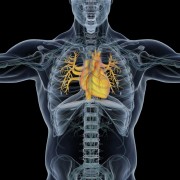Stem cells might fix heart attack damage
New bone marrow stem cell treatment offers heart attack patients the chance of a “moderate improvement”

A large-scale UK review of clinical trials has found that bone marrow stem cell therapy offers heart attack patients the chance of a “moderate improvement”.
The analysis by the Cochrane Collaboration looked at 33 trials involving more than 1,700 patients. It says that longer-term studies were needed to see if the experimental therapy affected life expectancy.
The review was published one day after doctors reported the first case of using heart cells to heal heart attack damage.
Dead muscle is replaced with scar tissue when a patient survives a heart attack. That leaves him or her weaker, and possibly dependant on lifelong medication.
Researchers are starting to show that scar tissue may be reduced and new heart muscle might grow when cells are taken from a heart, cloned in a laboratory, and pumped back into the heart.
Trials of this procedure are at a very early stage and they have involved only a handful of patients. However, a similar technique using cells taken from bone marrow, a prime source of stem cells, has a much longer pedigree.
Bone marrow trials support improvement
The Cochrane report pooled data from all 33 bone marrow trials conducted up to 2011. It concluded that bone marrow therapy “may lead to a moderate long-term improvement” in heart function, which “might be clinically very important”.
It also highlighted the fact that there was no evidence of “any significant effect on mortality”, when compared with standard treatment. However, that may be due to the scale of the studies and the fact that patients were followed up for just a short period of time.
Lead author Dr Enca Martin-Rendon, from NHS Blood and Transplant Research and Development at the John Radcliffe Hospital in Oxford, says: “This new treatment may lead to moderate improvement in heart function compared with standard treatments.”
“Stem cell therapy may also reduce the number of patients who later die or suffer from heart failure; but currently there is a lack of statistically significant evidence based on the small number of patients treated,” he added.
Prof Peter Weissberg, the Medical Director of the British Heart Foundation, points out that no one knows why, or even if stem cell therapies will translate into better survival rates or sustained improvement in damaged hearts. It’s still too early to judge the likely long-term benefits, he says.
Further links:
Cochrane.org
Related Articles
Why laughter may not be the best medicine
Dr Julian K.B. Tan, an interventional cardiologist at Mount Elizabeth Hospital, explains the how strong emotions may affect the heart
Read moreWhat is a heart attack?
Dr Paul Chiam discusses the importance of seeking treatment quickly in the case of a heart attack
Read moreLatest Articles
Medical Care
Clinical Exercise Physiologist (CEP): The Emerging of Exercise is Medicine
How Exercising can be a Medicine
Read moreMedical Care
Reversing type 2 Diabetes: Embracing Hope and Determination
Experience the remarkable journey of Ash and his grandfather Atok as they conquer type 2 diabetes through unconventional methods, showcasing the power of love and determination over adversity.
Read moreMedical Care
Bladder Cancer: What You Need to Know
Empower yourself with our comprehensive guide to bladder cancer. Explore symptoms, diagnosis, treatments, and supportive resources to safeguard your health.
Read more